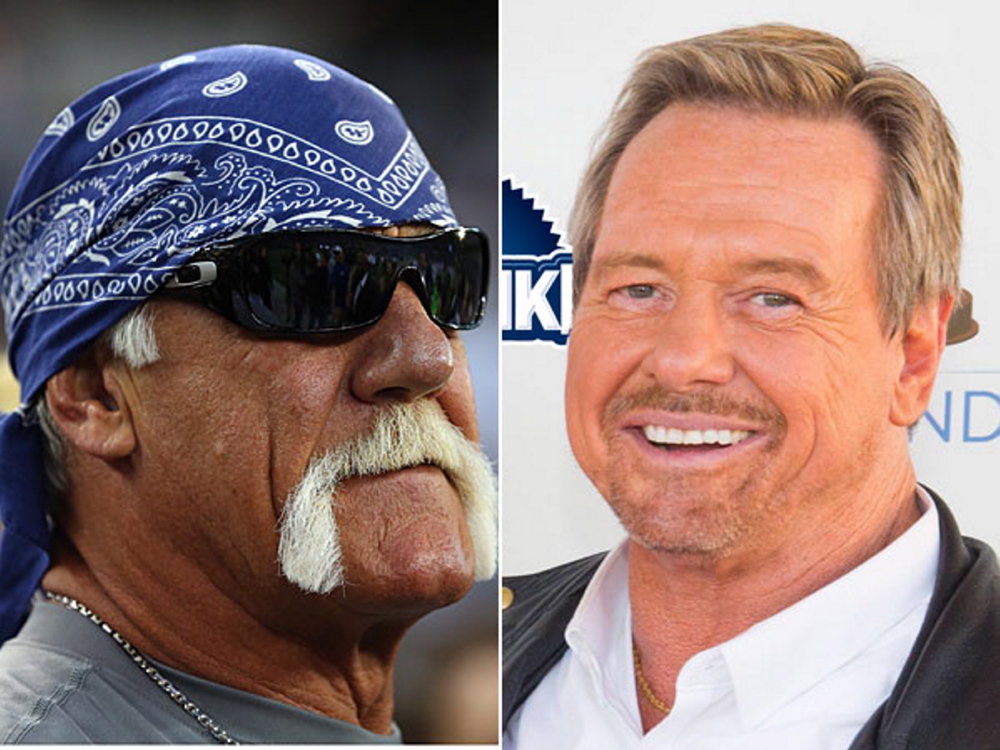On March 31, 1985, Hulk Hogan, along with TV icon Mr. T faced “Rowdy” Roddy Piper and Paul Orndorff in the first main event of Wrestlemania, the premier show of the World Wrestling Federation (now World Wrestling Entertainment).
Thirty years later, the wrestling world has been rocked by the events of two of those wrestlers: the untimely death of Piper at the age of 61, and the revelation of racist remarks made by Hogan — considered the Babe Ruth of wrestling — three years ago that have recently been released.
For Hogan (real name Terry Bollea), his latest controversy continues a downward spiral for a man once on top of the wrestling world. Multiple generations have grown up with Hogan, a 300-lb behemoth clad in yellow and red who appealed to children and adults alike by saying anyone can win at life as long as they “train, say your prayers and eat your vitamins.”
Vince McMahon, the chairman of the WWE, took full advantage of the popular Hogan movement — referred to as Hulkamania — and through a strong marketing campaign pushed the company to heights it had never before known during the 1980s. Hogan and Mr. T beat Piper and Orndorff in the main event of Wrestlemania I, but Hogan cemented his legacy at Wrestlemania III, where he bodyslammed the 500-lb Andre the Giant in front of 93,000 fans at the Pontiac Silverdome in Detroit. Hogan remained the WWE’s cash cow until 1996, when he jumped to World Championship Wrestling (WCW), became the head of the faction the New World Order and helped kick off the famed “Monday Night Wars” between the two companies that ultimately led to WCW’s demise in 2001. Hogan returned to WWE with much fanfare, including a rousing match against Dwayne “The Rock” Johnson that rocked the Toronto Skydome at Wrestlemania XVIII. Recently, Hogan has been WWE’s ambassador and served as a judge on the company’s reality series “Tough Enough.”
But Hogan has had more than his fair share of controversy. Hogan’s credibility first took a hit in 1994, when he admitted that he had been taking anabolic steroids for close to 20 years in a federal trial against McMahon and the WWE for distribution of steroids to its wrestlers. Hogan was granted immunity from prosecution but said McMahon never personally delivered steroids to him.
In 2007, Hogan’s son Nick Bollea was charged in Florida after a car accident that gave serious injuries to best friend and passenger John Graziano. Audio tapes were soon made online that showed during a phone conversation that Hogan suggested to Nick that Graziano’s injuries were “God’s will.” Hogan went on the TV show “Larry King Live” and apologized for the remarks. Nick Bollea pleaded no contest and served eight months in jail for reckless driving.
Hogan’s recent remarks come from a sex tape he was involved with in 2012. Hogan ranted to Heather Clem — then wife of radio host Todd “Bubba the Love Sponge” Clem — that he believed his daughter, Brooke, was dating an African-American male. Hogan referred to the male several times as a “n—–.” The remarks made it online last week, resulting in WWE promptly firing Hogan.
The IWC — otherwise known as the Internet Wrestling Community — have been split with the remarks, many coming to Hogan’s aide as a general mistake that can be forgiven, while others have refused to cheer for Hogan ever again. As a lifelong wrestling fan, I can tell you it’s more than a stuggle of a person many cheered for. It’s a loss of innocence for those who grew up believing in the words Hogan spoke. It’s seeing a hero fall. Fans are finally seeing that Terry Bollea is a flawed man that’s a far cry from the indestructible character of Hulk Hogan.
The only positive news for Hogan is that America loves a comeback. Perhaps staying away from the public eye for a couple years will help fans forgive and welcome him back. Perhaps then the WWE — now a publicly traded company that answers to stockholders — will rehire Hogan. The ultimate decision is left at the hands of wrestling fans.
Piper, who died July 31 of a heart attack, laid the blueprint of what the current “heel” or bad guy, wrestler should be. Born Roderick Toombs, the Canadian-born Piper strutted out to the ring with bagpipe music while wearing a kilt. In an era of good guys, or “baby faces,” Piper stood out as the industry’s top bad guy. He hosted a talk-show segment called “Piper’s Pit,” blasting his guests with words or fists. In the case of “Superfly” Jimmy Snuka, Piper famously cracked a coconut over the unassuming Snuka’s head. Piper was also one of the first wrestlers to get into acting (a practice now dominated by box office superstar Johnson). In the movie “They Live,” Piper gave the memorable line “I’ve come to chew bubble gum and kick ass, and I’m all out of bubble gum.”
In a time when he could get away with it, Piper had no problem using controversial tactics to incite heat from fans. He threw a banana at Snuka as a dig to his Fijian heritage. He once wrestled “Bad News” Brown — an African-American wrestler — with half his face painted black. Piper became a master of the “shoot” interview, working an angle with bouts of realism. Piper was THE heel of the 1980s. Piper’s skills in the ring regressed in the 1990s and he joined Hogan in WCW, but his mind and mouth stayed as sharp as ever. Piper recently hosted his own podcast while making the occasional WWE appearance. Piper inspired others outside the wrestling realm. Ronda Rousey, the popular UFC Bantamweight champion, dedicated her recent 34-second win over Bethe Correia to Piper, who allowed Rousey to use the nickname “Rowdy.”
This also comes on the heels of the death of Dusty Rhodes, the portly everyman wrestler affectionately known as “The American Dream.” The son of a Texas plumber, Rhodes fought how a stereotypical wrestler’s body should look like and made his way to stardom in the 1970’s and 1980’s for the National Wrestling Alliance (NWA) and Jim Crockett Promotions. Sporting a flashy style and strong promo skills, Rhodes was a pied piper for wrestling fans who could relate to his blue collar roots. Rhodes, who was working as a trainer for the WWE’s developmental program, NXT, died on June 11 at the age of 69.
As professional wrestling has shown over the years in the wake of tragedies and controversies, the show will go on. Wrestling fans will continue to fill up arenas around the country. But for a certain generation of wrestling fan, a piece of childhood has died with Rhodes and Piper. And Hulkamania will never be the same again.
Dave Dyer — 621-5639
ddyer@centralmaine.com
Twitter: @Dave_Dyer
Send questions/comments to the editors.




Success. Please wait for the page to reload. If the page does not reload within 5 seconds, please refresh the page.
Enter your email and password to access comments.
Hi, to comment on stories you must . This profile is in addition to your subscription and website login.
Already have a commenting profile? .
Invalid username/password.
Please check your email to confirm and complete your registration.
Only subscribers are eligible to post comments. Please subscribe or login first for digital access. Here’s why.
Use the form below to reset your password. When you've submitted your account email, we will send an email with a reset code.